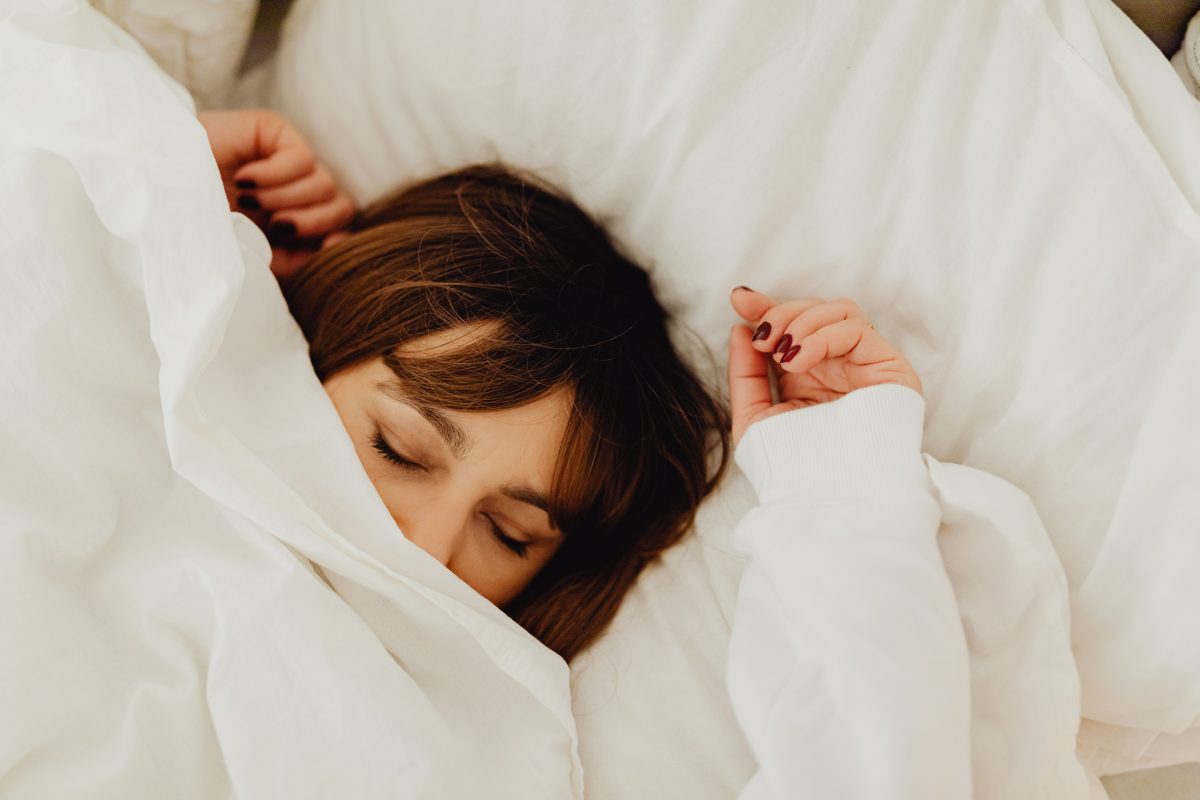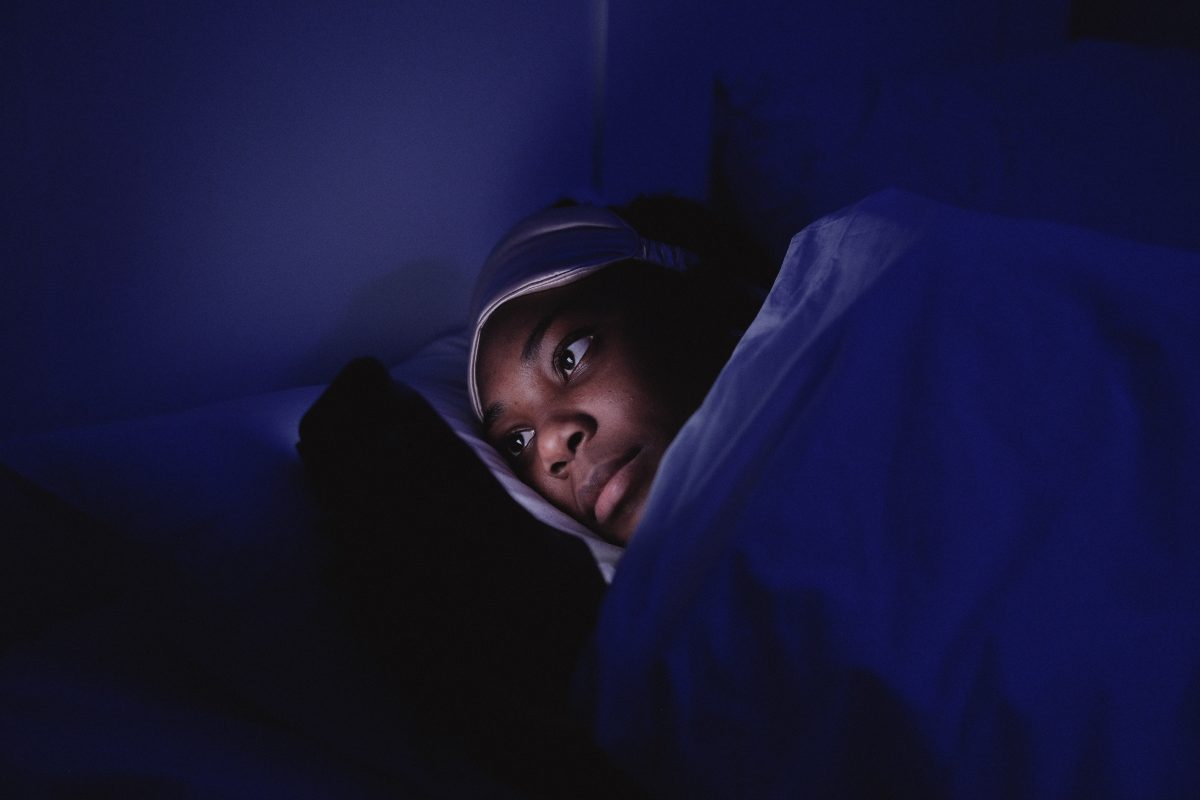Professor Avni Sali AM MBBS PhD FRACS FACS FACNEM

Most people can relate to the feelings of impaired daytime function and fatigue, lack of concentration and memory problems associated with a poor night’s sleep. But did you know that poor or insufficient sleep can also be a major health risk? Researchers have found sleep deprivation affects hundreds of genes involved with inflammation, immunity and our cells’ response to stress.
Sleep disorders, including insomnia and sleep apnoea which can present as a snoring problem, have been shown in studies to correlate with a range of health issues such as obesity, cancer and cardiovascular diseases including hypertension, strokes and heart attacks. Just one night of short sleep duration can induce insulin resistance, a major component of type 2 diabetes.
Abnormal sleep patterns predict lower life expectancy, and individuals with insomnia are more likely to develop a mood disorder, substance abuse and other adverse health conditions. Sleep disorders can also affect quality of life, increase the chance of injury and put strain on relationships. Research indicates that young people getting less than five hours sleep per night are tripling their chances of developing a mental illness. According to Professor Glozier, who lead the Australian study of 20,000 17-24year-olds “Sleep disturbance is a key symptom in mental disorders such as depression and commonly an early sign or “prodrome” of the illness. There is also fairly consistent evidence that insufficient sleep also increases risk of cardiovascular illness, and can lead to weight gain in young people.”
Lack of sleep is as dangerous as alcohol when behind the wheel of a car. We know that drowsy driving can be a highly risky to anyone who gets behind the wheel of a car.

A study conducted by the Centers for Disease Control and Prevention in the US found that 30 percent of adults report an average sleep duration of six hours or less. Sleep disorders can happen to anyone at any time, regardless of socio-economic status or type of work. The stressors of modern life, with its high ‘wired-to-technology’ gearing, is considered a major cause of sleep disorders today but in reality, our sleep problems started with the introduction of the light bulb and artificial light, which has dramatically shifted our typical sleep-awake patterns so that we no longer ‘rise and retire with the sun. Our present culture of sleep deprivation is pushing us past our biological capacity.
Sleep is an integral part of our biological rhythm. These rhythms are essential for health and wellbeing and provide cyclical times in which the body can perform a whole range of complex hormonal (including the sex hormones) and neuro-chemical processes that help keep us healthy. While we are asleep our bodies repair DNA, build and repair muscles and tissues, and regulate weight and mood chemicals. Leptin and Ghrelin, the two chemicals associated with hunger and appetite are affected by sleep deprivation, and depression and behaviour are both affected by the amount of sleep we experience.
Sleep is important for processing memories and newly learned tasks and is essential for the healthy functioning of the trillions of cells that comprise the human body. During sleep there is an increased secretion of growth hormone (GH) which is critical in fat breakdown, liver regeneration and normalisation of blood sugar. Sleep also functions as an antioxidant of the brain because free radicals are removed while we are asleep. Healthy sleep should be one of our primary health concerns.
Healthy sleep consists of two types of sleep that alternate through the night. Non-REM sleep is slow-wave sleep, which comprises about 75 percent of sleep time, REM sleep, which accounts for the remaining 25 percent, is characterised by an increase in brain activity with active dreaming, decreased muscle tone, variable heart and respiratory rates and rapid eye movements. It is a cyclical state that occurs every 90 minutes or so and can last between five and 30 minutes. REM sleep is considered vital to health and many sleep disorders, including a lack of sleep, are problematic because of their impact on REM-cycle sleep.
Insomnia, one of the most common sleep disorders, can be experienced in different forms. Symptoms of insomnia include difficulty in initiating sleep, difficulty in maintaining sleep, waking up too early, and non-restorative or poor-quality sleep. Over 50 percent of insomnia cases are caused by psychological factors, including stress and anxiety.

Tips for getting a better night’s sleep commonly focus on getting to bed earlier, changing bedroom conditions (temperature, darkness, noise), avoiding stimulants such as caffeine and alcohol, exposure to technology, maintaining regular sleep times and managing stress. These are all important components of ‘sleep hygiene’. The use of sleep medications is rapidly increasing – almost 10 million prescriptions are written annually in Australia for sleep medications. These can be useful as short-term aids, but it is more beneficial to review lifestyle causes and make the necessary adjustments.
The Integrative Medicine model provides us with a range of sleep-promoting interventions that deal specifically with causes rather than symptoms and can also be beneficial to overall health and wellbeing.
Integrative options include:
Cognitive Behavioural Therapy (CBT) – is a psychotherapeutic approach and research studies indicate that CBT can be more effective than sleeping medication for treating chronic insomnia.
Relaxation / Meditation /Yoga
Relaxation techniques can be useful when stress and worry causes sleep disruptions. Studies have shown mediation to have significant benefits for improving quality of sleep. Dealing with the underlying causes of stress where possible, as with CBT, is also advisable. There are many relaxation techniques such as music, and Apps to help fall asleep.
Exercise
Exercise during the day helps promotes better sleep. Regular physical exercise may promote relaxation and raise core body temperature in ways that are beneficial to initiating and maintaining sleep.
Sunshine and Bright Light Therapy
Increased daytime exposure to the sun (and correlating improved vitamin D levels) and reduced exposure to bright lights in the evening (including TVs, computer screens, smart phones and artificial light) can be used to ‘reboot’ the circadian rhythms and melatonin production in the body.
Diet
Diet can play an important role in sleep. Losing weight can improve sleep. Many of the brain chemicals necessary for good sleep can be found in specific foods. If intake is problematic there is also the possibility of obtaining these essentials in supplement form, under the guidance of an integrative GP or health professional.
- Melatonin is a hormone made in the pineal gland in the brain. It is produced from the amino acid tryptophan. Sunshine stimulates melatonin production and darkness stimulates its release from the pineal gland.
- L-tryptophan is a precursor to melatonin that is necessary for the body to produce both melatonin and serotonin. It can be sourced from many foods, particularly proteins, including milk, or taken as a supplement.
- Magnesium is helpful especially when restless leg syndrome (RLS) or cramps are affecting sleep.

Herbal Medicines
Both valerian and hops have shown efficacy for the treatment of insomnia. Hops is well known as a bitter agent in the brewing industry and has a long history of use for sleep disorders. Valerian is proven to improve sleep quality without any other side effects. Taken together valerian and hops may be even more effective.
Passionflower is also popular as herbal sleep aid due to its strong relaxing properties.
Ashwagandha is an Ayurveda adaptogenic herb used to reduce stress and anxiety, and may help improve sleep quality and reduce mild insomnia. It helps to improve sleep via its relaxing, anxiolytic properties.
Chamomile is one of the most popular herbs for improving sleep.
A 2017 study found that chamomile extract helped to increase sleep quality in the participants. Although chamomile did not directly impact sleep duration, it did have a significant effect on the sleep efficiency, and sleep quality of the study participants.
Of late, Medicinal Cannabis has emerged as a treatment for many conditions, in particular sleep. Over 50 studies shows that it improves sleep quality and duration. In particular it improves sleep with very few side effects.
NIIM Studies investigating Medicinal Cannabis in adults with insomnia have shown that medicinal cannabis oil was well tolerated and effective in improving sleep quality, duration and associated quality-of-life in adults with insomnia.
Review of Other Medications
A major cause of sleep disorders can be other medications. Anti-depressants are known to interrupt REM-sleep cycles and while it may be necessary to use medication to relieve pain symptoms that interfere with sleep, this can often create a counter-productive cycle. Alternative pain relief strategies can be explored.
The average adult needs between six and eight hours sleep every night, although it is difficult to know how much sleep a particular individual should have. Adolescents and children generally require more sleep than adults. Both too little and too much sleep can negatively affect health. Contrary to popular belief, we cannot ‘catch up on lost sleep’ on the weekend, and we are often unable to realise just how mentally impaired we are by our sleep deficit. We need to learn to sleep naturally again, and make it our health goal to awaken refreshed each morning, without the invasion of stress-inducing alarm clocks! Ralph Waldo Emerson said, ‘Finish each day before you begin the next, and interpose a solid wall of sleep between the two.’ His advice not only underlines the importance of good sleep, but also provides us with a terrific mantra for optimal health.
Foods with substances that may enhance sleep
Cherries are one of the few natural foods to contain melatonin, the chemical that helps control our body’s internal clock.
Milk contains the amino acid tryptophan, a precursor to the brain chemical serotonin.
Complex carbs such as quinoa, barley, buckwheat and whole-wheat bread, are, in general, good for sleep but it’s not a great idea to binge on carbs before bedtime.
Bananas help promote sleep because they contain the natural muscle-relaxants magnesium and potassium. They are also a good carb.
Turkey, like milk, contains tryptophan, a chemical that can make people feel sleepy. Hummus, lentils, eggs, and many nuts and seeds are also good sources of tryptophan.
Sweet potatoes provide sleep-promoting complex carbohydrates, and the muscle-relaxant potassium.
Herbal Teas such as Valerian, Chamomile and sleep combination teas, can promote drowsiness.
Foods that may adversely affect sleep
Cheeseburgers have a super high fat content guaranteed to be a sleep killer. Fat stimulates the production of acid in the stomach, which can spill up into your esophagus, causing heartburn.
Alcohol, including wine, metabolises quickly in your system and causes you to wake up multiple times during the night. And you’re more likely to snore.
Coffee contains caffeine, which is a central nervous stimulant.
Energy drinks are very high in caffeine. They are best avoided later in the day or, even better, avoided completely.
Soft drinks contain lots of sugar, caffeine and the preservative sodium benzoate (211) and other chemicals that can aggravate the gastrointestinal tract and promote acid reflux.
Heavily spiced foods can keep you awake at night, especially if the spices contribute to heartburn. Combined with a high fat dish, they are a recipe for insomnia.
In my consultation with patients, sleep is one of the first issues I address. Sleep is crucial in maintaining health it is also of key importance in the treatment of any condition, especially chronic illness. Optimal health cannot be achieved without optimal sleep.
Bibliography
Kotsirilos K, Vitetta L, Sali A (2011), A guide to evidence-based integrative and complementary medicine, Elsevier, Sydney.
Francesco P. Cappuccio, F.P et al. Sleep Duration and All-Cause Mortality: A Systematic Review and Meta-Analysis of Prospective Studies. Sleep. 2010 May
Adib-Hajbaghery IM et al, The effects of chamomile extract on sleep quality among elderly people: A clinical trial, Complementary Therapies in Medicine. December 2017
Karin Ried, Tasnuva Tamanna, Sonja Matthews, Avni Sali, Medicinal cannabis improves sleep in adults with insomnia: a randomised double-blind placebo-controlled crossover study. Jour Sleep Vol 32. June 2023
